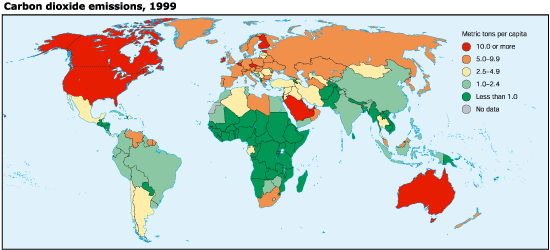http://www.usatoday.com/news/nation/environment/school-air1.htm
Monday, April 12, 2010
Health Risks for Students
People are becoming more aware that health problems occur more frequently for those that live near power plants but are unaware that students that attend schools near power plants are at risk too. In 2005 Meredith Hitchens, an elementary school, was shut down due to dangerous levels of chemicals in the air. USA Today did a study across the country that estimated 435 school’s air quality had higher levels of toxins than Meredith Hitchens. These schools’ air had chemical concentrations up to a dozen times higher than what the government approves as safe. Wide ranges of health risks are occurring like different cancers, mental and emotional problems. The plants that are producing these chemicals provide jobs and the tax base that uphold the communities. Many residents have either accepted or ignored the health problems the factories create because they need the work. Often times companies only approximate what chemicals they release so the amount of toxins could be higher. In thousands of these cases it has shown that the air quality in the children’s neighborhoods are better than their schools. I think that stronger regulations need to be enforced on these power plants or the power plants need to be shut down. So many children’s health are at risk because they are attending school. There are no safety standards for children at school and that needs to be changed. Children can be more vulnerable to diseases and they should be protected.
Subscribe to:
Post Comments (Atom)

I definitely agree with your thoughts here. It is pretty terrible that our energy and job needs are higher prioritized than the health of children and our future. With an article like this it makes me wonder just how often people are exposed to harmful toxins unknowingly. This is certainly grounds for many lawsuits in the future. However I can't imagine the implications of shutting down either the power plant or the school, two very important aspects to any community.
ReplyDeleteThis topic can easily be given another dimension by looking at the implications of environmental racism. Less affluent people often buy cheaper housing, which has often been zoned for power production, or waste remediation. The effects on children are disheartening, as the chances of an affected child continuing to live under these same conditions are great.
ReplyDeleteI am not sure where this school is located, but could definately be another example of environmental racism like Sammy mentioned. Unfortunately if that is the case, little will probably be changed, since people who live in primarily rental-communities have much less of a voice in these situations. This is also evident in which school are being hit hardest by state budget cuts for education.
ReplyDeletewhile I agree that there is potential for this to be an issue of environmental racism I always wonder in those situations which came first: the high percentage of low-income or minority families or the powerplant and then falling property values and increasing presence the aforementioned families. I also would like to know more about the awareness of the community and more about the legal responsibility to inform the potentially affected individuals.
ReplyDeleteThis is definitely a problem that needs to be addressed, punishing children before they have any ability to defend themselves is a travesty. I really don't agree with the concept of environmental racism though. While it is true that a disproportionate amount of people of color are subjected to less than desirable environmental conditions, I really think that what is deemed "environmental racism," is instead strictly an economic issue. I feel as though labeling it as environmental RACISM promotes feelings amongst people that are skewed. I feel as though this issue needs to be relabeled so that it reflects what it actually is. These occurrences of degraded living situations are due strictly to economic issues, no one finds the area containing the most minorities and then plans to build there. They build where it is the cheapest to do so, and they dump where it is the cheapest to do so. Property values are high in affluent areas because people pay the cost to not have to live like in hazardous areas. This is a horrible thing that is happening, it is awful, no one should have to live like that. It is NOT however, a racist thing.
ReplyDeleteI did not mean to put that like in my last sentence either, whoops. I was initially going to make another rant. Sorry if I offended anyone.
ReplyDeleteI am shocked that there aren't more regulations in place to ensure everyone's safety, but especially children who are so susceptibale to health problems. It is autrocious to me that the owners of these power plants as well as the worker's do not take a more active role in ensuring human safety. It seems to me it is a basic human desire to protect your community and your children, and the lack of such regulations is a testament to how far human populations have become unattached to what is truly important.
ReplyDeletewhether this is a case of environmental racism or not, it is certainly a case of environmental injustice. On the positive side, I think this kind of issue provides an avenue for sociologists and other fields to get involved in protecting the environment for humans and other species alike.
ReplyDelete